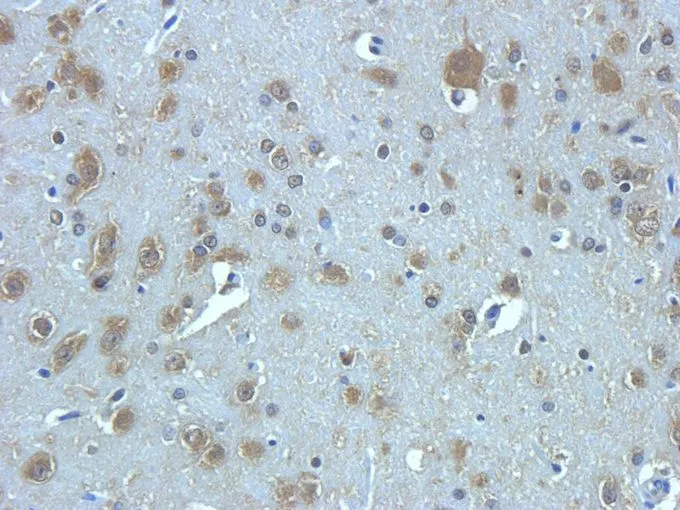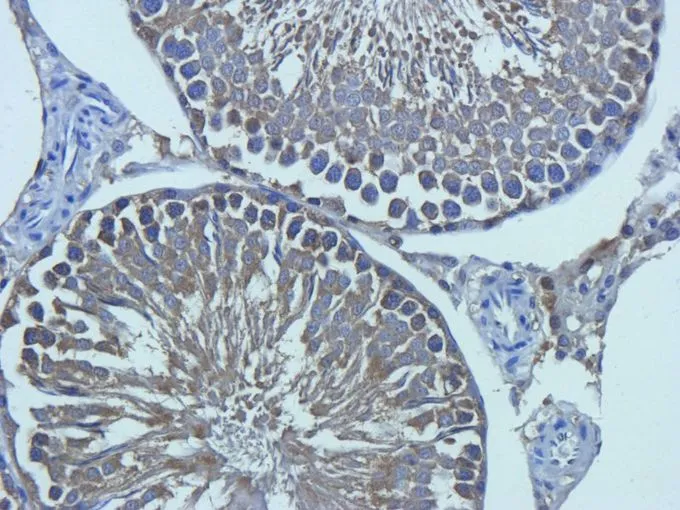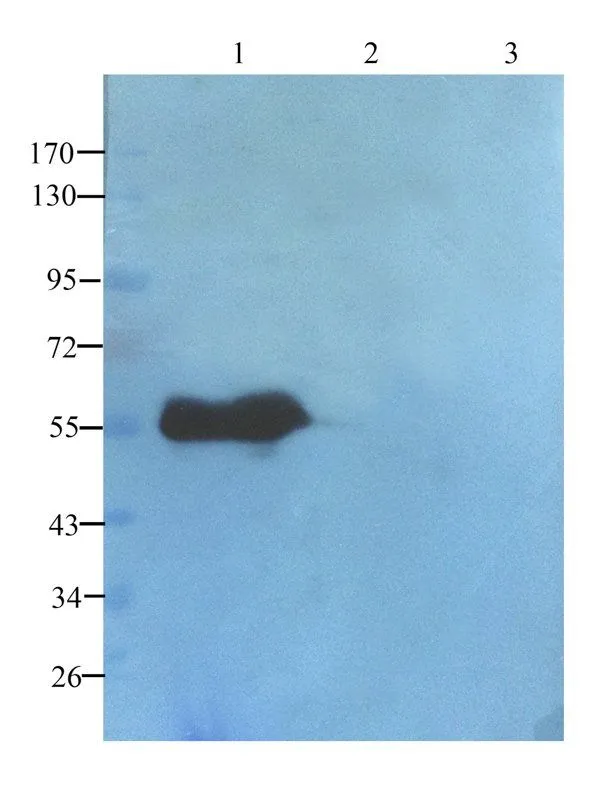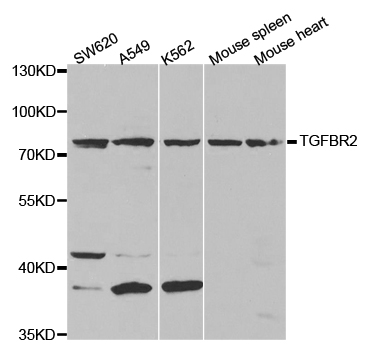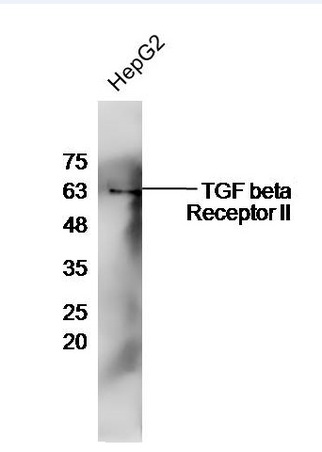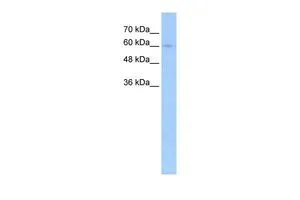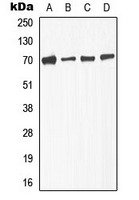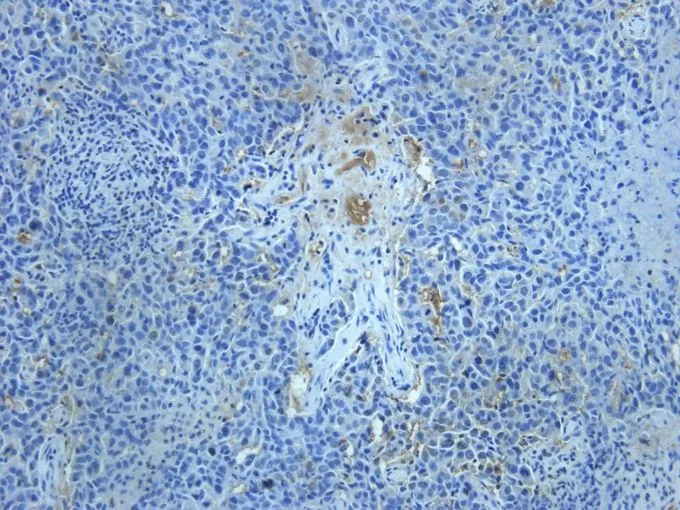
IHC-P analysis of human breast cancer tissue using GTX37527 TGF beta Receptor 2 antibody. Dilution : 2.5microg/ml
TGF beta Receptor 2 antibody
GTX37527
ApplicationsWestern Blot, ImmunoHistoChemistry, ImmunoHistoChemistry Paraffin
Product group Antibodies
TargetTGFBR2
Overview
- SupplierGeneTex
- Product NameTGF beta Receptor 2 antibody
- Delivery Days Customer9
- Application Supplier NoteWB: 1:100-2000. IHC-P: 1:100-600. *Optimal dilutions/concentrations should be determined by the researcher.Not tested in other applications.
- ApplicationsWestern Blot, ImmunoHistoChemistry, ImmunoHistoChemistry Paraffin
- CertificationResearch Use Only
- ClonalityPolyclonal
- Concentration0.5 mg/ml
- ConjugateUnconjugated
- Gene ID7048
- Target nameTGFBR2
- Target descriptiontransforming growth factor beta receptor 2
- Target synonymsAAT3, FAA3, LDS1B, LDS2, LDS2B, MFS2, RIIC, TAAD2, TBR-ii, TBRII, TGFR-2, TGFbeta-RII, tbetaR-II, TGF-beta receptor type-2, TGF-beta receptor type IIB, TGF-beta type II receptor, transforming growth factor beta receptor II, transforming growth factor beta receptor type IIC, transforming growth factor, beta receptor II (70/80kDa), transforming growth factor, beta receptor II alpha, transforming growth factor, beta receptor II beta, transforming growth factor, beta receptor II delta, transforming growth factor, beta receptor II epsilon, transforming growth factor, beta receptor II gamma
- HostRabbit
- IsotypeIgG
- Protein IDP37173
- Protein NameTGF-beta receptor type-2
- Scientific DescriptionThe protein encoded by this gene is a transmembrane protein that has a protein kinase domain, forms a heterodimeric complex with TGF-beta receptor type-1, and binds TGF-beta. This receptor/ligand complex phosphorylates proteins, which then enter the nucleus and regulate the transcription of genes related to cell proliferation, cell cycle arrest, wound healing, immunosuppression, and tumorigenesis. Mutations in this gene have been associated with Marfan Syndrome, Loeys-Deitz Aortic Aneurysm Syndrome, and the development of various types of tumors. Alternatively spliced transcript variants encoding different isoforms have been characterized. [provided by RefSeq, Aug 2017]
- Storage Instruction-20°C or -80°C,2°C to 8°C
- UNSPSC12352203
References
- Khan S, Sbeity M, Foulquier F, et al. TMEM165 a new player in proteoglycan synthesis: loss of TMEM165 impairs elongation of chondroitin- and heparan-sulfate glycosaminoglycan chains of proteoglycans and triggers early chondrocyte differentiation and hypertrophy. Cell Death Dis. 2021,13(1):11. doi: 10.1038/s41419-021-04458-1Read this paper

